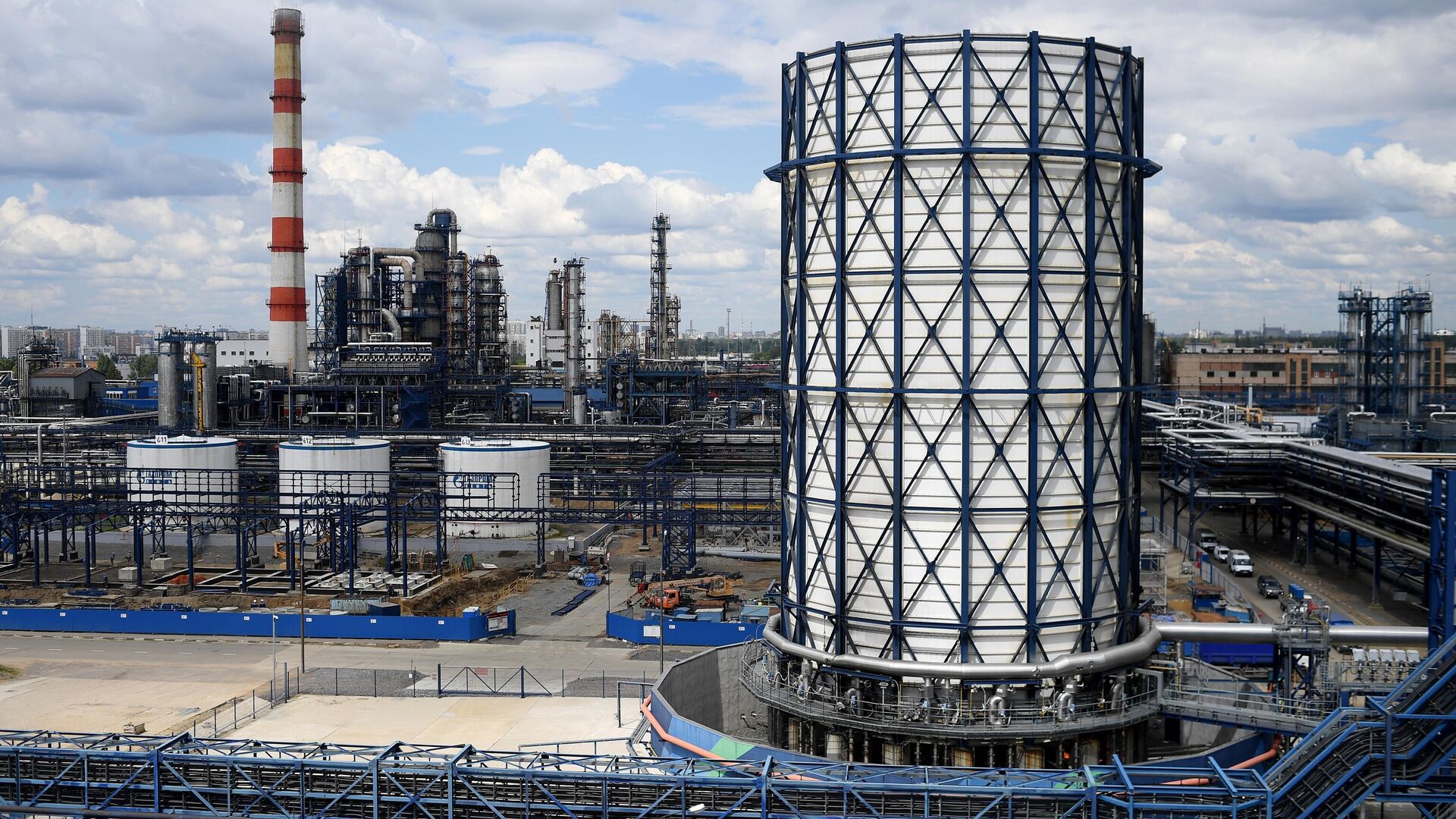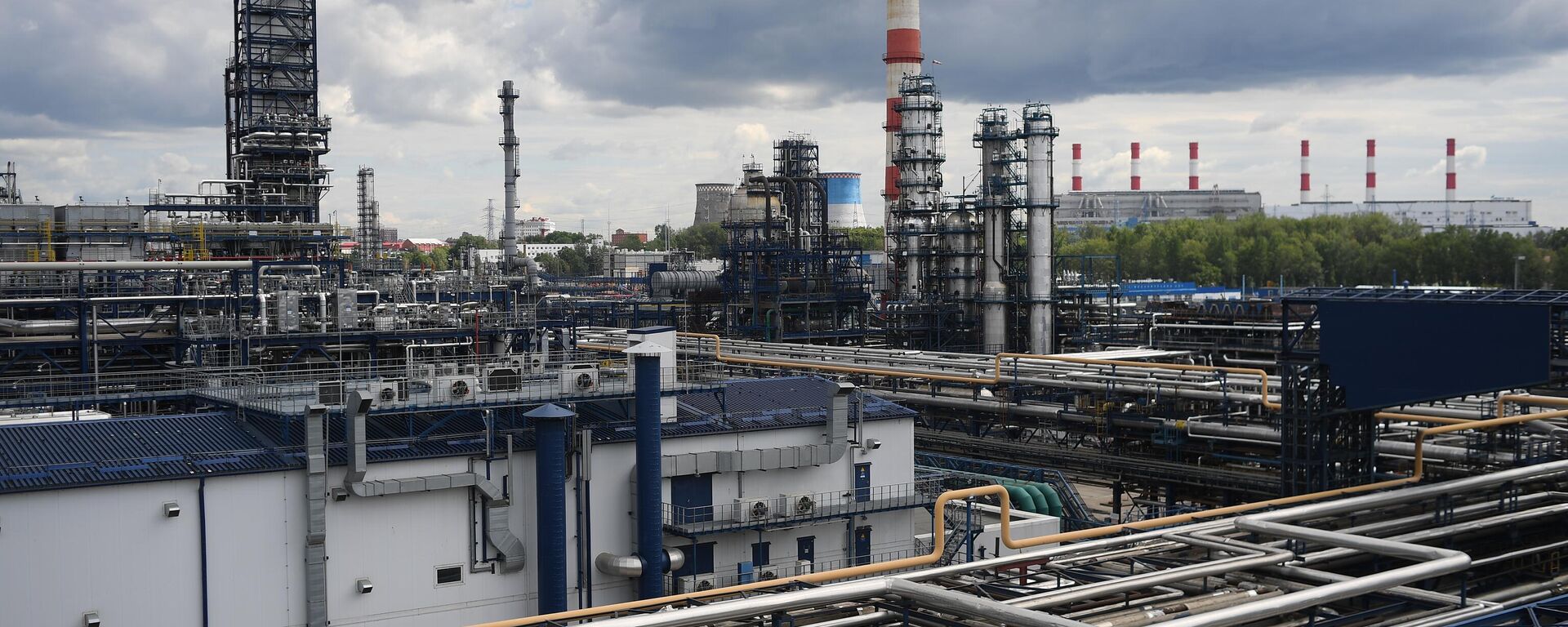https://en.sputniknews.africa/20230509/morocco-can-import-russian-fuel-prime-minister-confirms-1059135394.html
Morocco Can Import Russian Fuel, Prime Minister Confirms
Morocco Can Import Russian Fuel, Prime Minister Confirms
Sputnik Africa
Morocco can import Russian fuel as it's importing the country's coal, and nothing prevents it from doing so, Moroccan Prime Minister Aziz Akhannouch said during a parliamentary session in the House of Representatives.
2023-05-09T14:16+0200
2023-05-09T14:16+0200
2023-05-09T14:16+0200
north africa
morocco
russia
fossil fuels
oil
cooperation
https://cdn1.img.sputniknews.africa/img/07e7/05/09/1059135988_0:188:3072:1916_1920x0_80_0_0_61dfdc49cd6d6b5209f1b76099e18843.jpg
Morocco can import Russian fuel as it's importing the country's coal - and nothing prevents it from doing so, Moroccan Prime Minister Aziz Akhannouch confirmed during a parliamentary session in the House of Representatives, as cited by local media.The country's top official responded to the questions over the possibility of importing fuel from Russia amid Western sanctions over its special military operation in Ukraine. Noting that there are no major hurdles, Akhannouch admitted that what problems there are lie with international banks which are not able to, or refuse to, finance imports from Russia. He criticized some opposition parties that were planning to form a parliamentary committee to investigate Russian fuel imports. Last month, three opposition parties announced their intention to create a committee to investigate the imports, citing lack of transparency, safety and legality of these operations. In March, Moroccan Economy Minister Nadia Fettah Alaoui denied reports about Morocco following the ban on importing Russian oil products, and indicated that their share in overall oil imports increased compared to 2022. In particular, she reportedly noted that "the share of Russian diesel increased in January and February, to stand at 13%." In February, a leading US-based newspaper reported that North African countries, namely Tunisia and Morocco, had increased imports of diesel and other refined petroleum products from Russia. In January, Tunisia acquired 2.8 million barrels of Russian oil products, while Moroccan imports of Russian diesel stood at two million barrels. The newspaper stressed that North African nations had "picked up the slack," as Russia is now largely cut off from the European market.The EU imposed a ban on the purchase and import of seaborne Russian crude oil from December last year. In February, an EU ban on imports of refined petroleum products from Russia, including diesel and jet fuel, came into effect. The moves are ostensibly part of Western efforts to cut off Russian fossil fuels from their economies, end their energy dependence on Russia, and limit Moscow's sources of funds.
https://en.sputniknews.africa/20230227/1059135496.html
north africa
morocco
russia
Sputnik Africa
feedback@sputniknews.com
+74956456601
MIA „Rossiya Segodnya“
2023
News
en_EN
Sputnik Africa
feedback@sputniknews.com
+74956456601
MIA „Rossiya Segodnya“
Sputnik Africa
feedback@sputniknews.com
+74956456601
MIA „Rossiya Segodnya“
north africa, morocco, russia, sanctions, fuel, oil, imports of russian fuel
north africa, morocco, russia, sanctions, fuel, oil, imports of russian fuel
Morocco Can Import Russian Fuel, Prime Minister Confirms
Western sanctions imposed on Russia following the onset of the special military operation in Ukraine have targeted exports of Russian hydrocarbons, including crude oil and petroleum products. Despite this, Russia has been increasing its cooperation in the energy field with its African partners.
Morocco can import Russian fuel as it's importing the country's coal - and nothing prevents it from doing so, Moroccan Prime Minister Aziz Akhannouch confirmed during a parliamentary session in the House of Representatives, as cited by local media.
"Morocco is likely to import Russian fuel as it’s importing Russian coal. Nothing prevents Rabat from doing this," said Akhannouch, adding: "Nothing prevents [our] imports of grain from Russia or Ukraine too."
The country's top official responded to the questions over the possibility of importing fuel from Russia amid
Western sanctions over its special military operation in Ukraine.
Noting that there are no major hurdles, Akhannouch admitted that what problems there are lie with international banks which are not able to, or refuse to, finance imports from Russia.
He criticized some opposition parties that were planning to form a parliamentary committee to investigate Russian fuel imports. Last month, three opposition parties announced their intention to create a committee to investigate the imports, citing lack of transparency, safety and legality of these operations.
In March, Moroccan Economy Minister Nadia Fettah Alaoui denied reports about Morocco following the ban on importing Russian oil products, and indicated that their share in overall oil imports increased compared to 2022. In particular, she reportedly noted that "the share of Russian diesel increased in January and February, to stand at 13%."
In February, a leading US-based newspaper
reported that North African countries, namely Tunisia and Morocco, had increased imports of diesel and other refined petroleum products from Russia. In January, Tunisia acquired 2.8 million barrels of Russian oil products, while Moroccan imports of Russian diesel stood at two million barrels. The newspaper stressed that North African nations had "picked up the slack," as Russia is now largely cut off from the European market.
The EU
imposed a ban on the purchase and import of seaborne Russian crude oil from December last year. In February, an EU ban on imports of refined petroleum products from Russia, including diesel and jet fuel, came into effect. The moves are ostensibly part of Western efforts to
cut off Russian fossil fuels from their economies, end their energy dependence on Russia, and limit Moscow's sources of funds.


